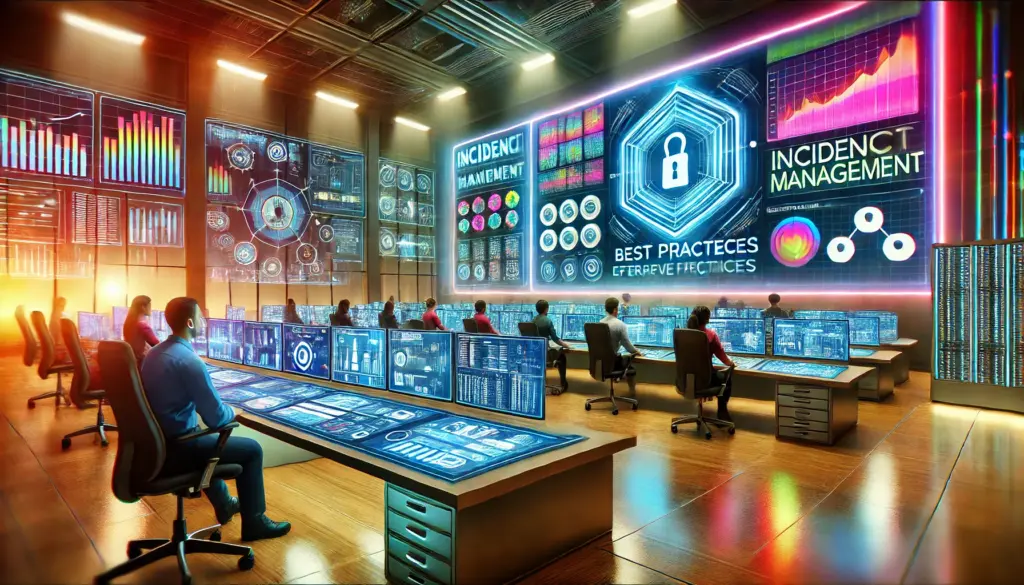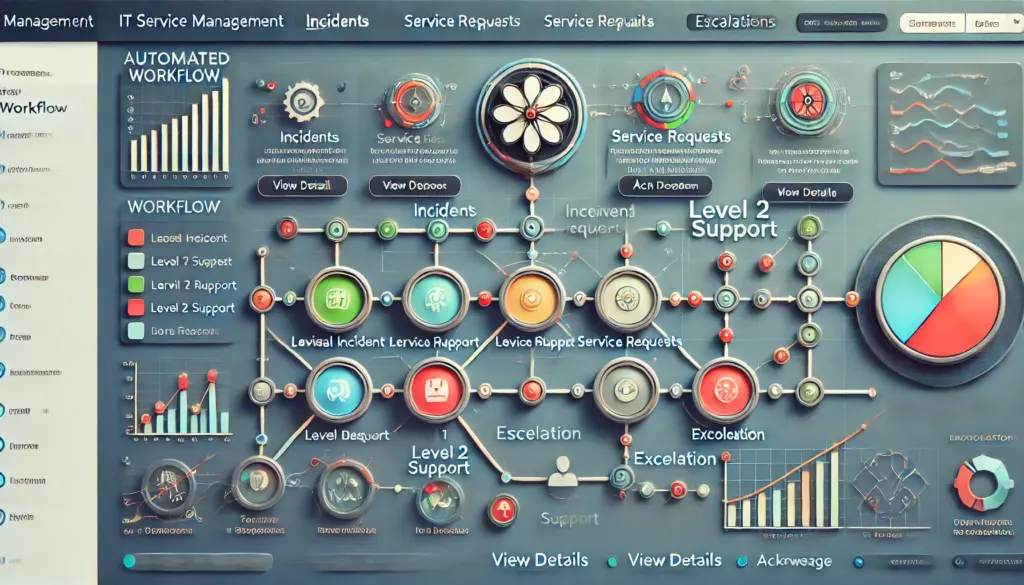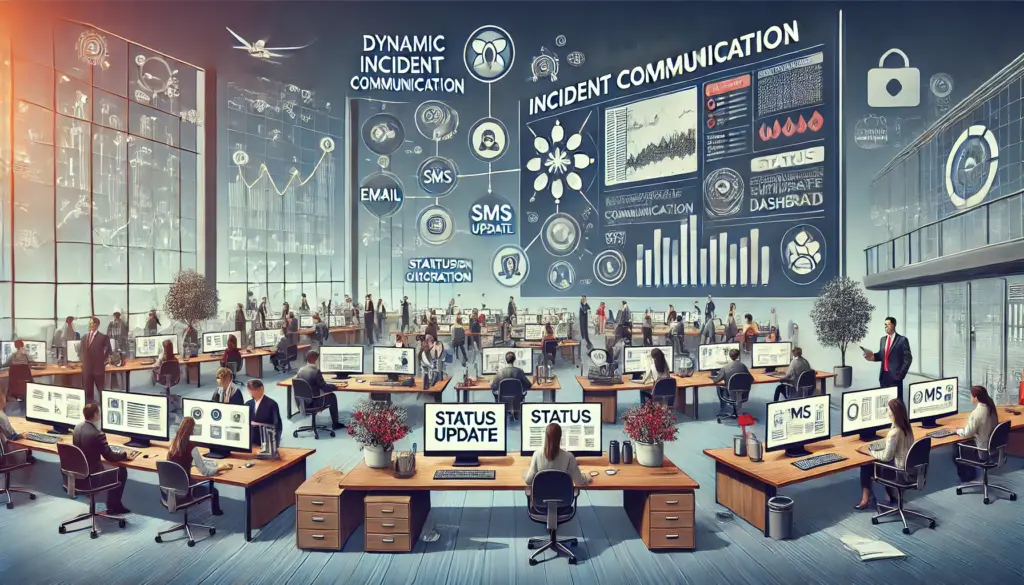🏆 Leadership Skills Every Senior Incident Manager Should Develop
Incident management is a high-stakes, high-pressure role that requires more than just technical expertise. Senior incident managers play a crucial role in ensuring seamless service delivery, minimizing downtime, and maintaining business continuity. As technology landscapes evolve and businesses become more reliant on digital platforms, the role of an incident manager has expanded beyond troubleshooting to include leadership, strategic planning, and stakeholder management.
In this detailed guide, we will explore the must-have leadership skills that every senior incident manager should develop to excel in their role. Whether you’re an aspiring leader in incident management or already in a senior position, these skills will help you drive efficiency, build strong teams, and foster a proactive approach to handling critical incidents.

🎯 1. Strategic Decision-Making
Effective incident management is built on the foundation of quick and strategic decision-making. Senior incident managers must be able to assess high-impact situations, weigh the risks, and choose the best course of action under intense pressure.
Why It’s Important:
- Ensures that incident resolution aligns with business priorities.
- Helps in mitigating risks efficiently.
- Reduces mean time to resolution (MTTR) by eliminating delays in decision-making.
- Prevents recurring incidents by implementing long-term solutions.
Key Aspects of Strategic Decision-Making:
✅ Quickly analyzing the impact of an incident on systems and business operations. ✅ Identifying alternative solutions and choosing the best course of action. ✅ Balancing technical and business priorities when making decisions. ✅ Ensuring that decisions align with organizational objectives and compliance policies.
How to Improve Strategic Decision-Making:
- Practice scenario-based simulations to enhance analytical and quick-thinking abilities.
- Leverage data analytics and monitoring tools like New Relic, Grafana, or Splunk for informed decision-making.
- Collaborate with cross-functional teams to gain diverse insights and prevent siloed decision-making.
- Maintain a structured incident response playbook to streamline actions during crises.
💡 2. Effective Communication
Communication is the backbone of incident management. A senior incident manager must clearly articulate issues, solutions, and action plans to multiple stakeholders, including technical teams, executives, and customers.
Why It’s Important:
- Reduces confusion and ensures alignment across teams.
- Improves incident response coordination by setting clear expectations.
- Builds trust with stakeholders through transparent communication.
- Helps in crafting clear post-incident reports that drive improvements.
Key Aspects of Effective Communication:
🔹 Translating complex technical issues into simple, understandable terms.
🔹 Providing real-time updates to stakeholders without causing panic.
🔹 Setting clear expectations and responsibilities for teams.
🔹 Encouraging a culture of open feedback and proactive discussions.
How to Improve Communication Skills:
- Use structured frameworks like SBAR (Situation, Background, Assessment, Recommendation) for clarity.
- Conduct communication drills to improve crisis messaging under pressure.
- Develop templates for incident status updates, reports, and executive summaries.
- Utilize collaboration tools like Slack, Microsoft Teams, or Atlassian Suite for streamlined communication.
🤝 3. Conflict Resolution & Team Collaboration
Incidents often lead to heightened stress levels and disagreements between teams. A senior incident manager must be a skilled mediator, ensuring smooth collaboration and resolving conflicts effectively.
Why It’s Important:
- Encourages team cohesion and prevents blame culture.
- Ensures that incidents are resolved without unnecessary delays caused by disputes.
- Fosters a positive and proactive incident management culture.
- Strengthens relationships between cross-functional teams, improving long-term collaboration.
Key Aspects of Conflict Resolution:
🔸 Understanding different team perspectives to mediate disagreements.
🔸 Encouraging a blame-free environment focused on solutions rather than finger-pointing.
🔸 Ensuring everyone’s voice is heard while maintaining control over the resolution process.
🔸 Strengthening team trust and collaboration through regular incident retrospectives.
How to Improve Conflict Resolution Skills:
- Conduct post-incident review meetings with a constructive, non-judgmental approach.
- Use collaborative decision-making frameworks like DACI (Driver, Approver, Contributor, Informed).
- Implement team-building exercises that enhance interdepartmental relationships.
- Encourage an empathy-driven approach to problem-solving.
⏳ 4. Crisis Management & Resilience
Incidents are often unpredictable, and senior incident managers must possess the mental resilience and strategic mindset to handle crises efficiently.
Why It’s Important:
- Helps in staying calm and composed under extreme pressure.
- Ensures that teams follow structured processes rather than reacting impulsively.
- Boosts overall team morale and confidence during major outages.
- Improves customer and stakeholder confidence in your incident response capabilities.
Key Aspects of Crisis Management:
✔️ Maintaining a calm demeanor to prevent panic-driven decisions.
✔️ Ensuring structured escalation to the right teams and decision-makers.
✔️ Managing stress and workload effectively to prevent burnout.
✔️ Maintaining a solution-focused approach rather than dwelling on failures.
How to Improve Crisis Management Skills:
- Develop a well-documented incident response framework.
- Conduct real-world crisis simulation drills to enhance preparedness.
- Encourage a balanced work environment to avoid stress-induced mistakes.
- Stay up to date with industry best practices through continuous learning.
❓ Frequently Asked Questions (FAQ)
What is the most important leadership skill for a senior incident manager❓
All leadership skills are important, but strategic decision-making and effective communication are the most critical. These skills ensure quick, informed decisions and clear coordination during incidents.
How can senior incident managers improve their crisis management skills❓
To improve crisis management skills, senior incident managers should conduct regular incident simulations, develop structured playbooks, and stay updated with industry best practices.
How does conflict resolution impact incident management❓
Effective conflict resolution ensures that teams collaborate smoothly, preventing unnecessary delays and blame culture. It helps in maintaining focus on resolving incidents efficiently.
Why is continuous learning important for incident managers❓
The technology landscape is always evolving. Senior incident managers must stay updated with new tools, methodologies, and security threats to maintain effective incident response capabilities.
What tools can help in making data-driven decisions in incident management❓
Tools like New Relic, Grafana, Splunk, ELK Stack, and PagerDuty help incident managers analyze incidents, detect patterns, and optimize response strategies for better decision-making.
🚀 Conclusion
A senior incident manager’s success is not just about technical expertise—it’s about leading teams, making sound decisions, and fostering a culture of collaboration. By developing these leadership skills, you can drive efficiency, minimize risks, and ensure seamless incident resolution.
Key Takeaways:
✅ Strategic decision-making ensures incidents are resolved in alignment with business goals.
✅ Effective communication fosters clarity and prevents miscommunication.
✅ Conflict resolution skills help in maintaining team harmony.
✅ Crisis management and resilience prepare you for unpredictable challenges.
✅ Continuous learning and adaptability keep you ahead in the incident management field.
📚 Learn More:
➡️ What leadership skill do you think is most critical for incident managers? Drop your thoughts in the comments!
📢 Share this blog with your team to help them enhance their leadership skills in incident management!




